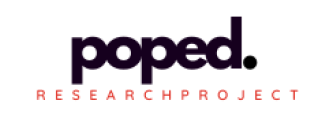View/Open
How do economic crises affect entrepreneurial activity in the informal economy? Are new businesses created during crises temporary stop-gaps, with individuals seeking survival in the informal economy, or do they endure into the long run – longevity? Further, what lessons can be learned for entrepreneurial development in countries with persistent economic crisis and weak institutions? We seek answers to these questions through an analysis of cross-section data collected from Nigeria over a decade at five irregular points: 2012, 2017, 2019, 2021 and 2022. The survey explores individuals’ motives for operating in the informal economy, alongside the longevity of their businesses. These we split into push and pull factors, reflecting necessity entrepreneurship and opportunity entrepreneurship theoretical view. Although Nigeria has experienced years of recession or underwhelming economic performances, our data covers, and indeed data analysis singled out for analysis, two economic crises: the 1980s Structural Adjustment Programme, and the 2007-09 Global Economic Crisis. We analyse the data using the MIMIC method, and confirm robustness of our findings with a Multinomial analysis. Our study finds evidence of necessity entrepreneurship as a key motivation for engaging in the informal economy at these times. We also find that businesses started during these crises have survived in disproportionate numbers. We interpret this as indicating a shift in motivation, from the initial entrepreneurial activity of setting-up a new business driven by necessity, to the longer-run, when individuals choose to remain in the informal economy. We argue that the pull factors shaping opportunity entrepreneurship, in this context, need to be re-designated: as retention factors. Moreover in 2021, although absent from the 2012, 2017 and 2019 surveys, we added to the questionnaire two separate questions relating to the motives for starting and continuing a business respectively in the informal economy. This data again confirms earlier results reported for 2012 data: necessity/push and opportunity/pull factors relate to motives for starting and continuing business in the informal economy respectively. In times of economic crisis, the informal economy is capable of, and efficient at, absorbing shocks to the formal economy. Policymakers must recognise this in their approaches to the governance of the informal economy. Our findings also confirm that these businesses are not just short-run stopgaps, but are capable of long-run viability and success, providing jobs and income to a significant proportion of the population.
Citation : Igudia, E., Ackrill, R. and Webb, J. (2023) No venture, no success – theorising business start-ups in the informal economy during economic crisis and their longevity in Nigeria. The Menard Family George Washington Forum: Capitalism and Informality, Ohio 14-15 April 2023
URL
https://hdl.handle.net/2086/22937
Research Institute : Institute for Applied Economics and Social Value (IAESV)
Peer Reviewed : Yes


0 Comments